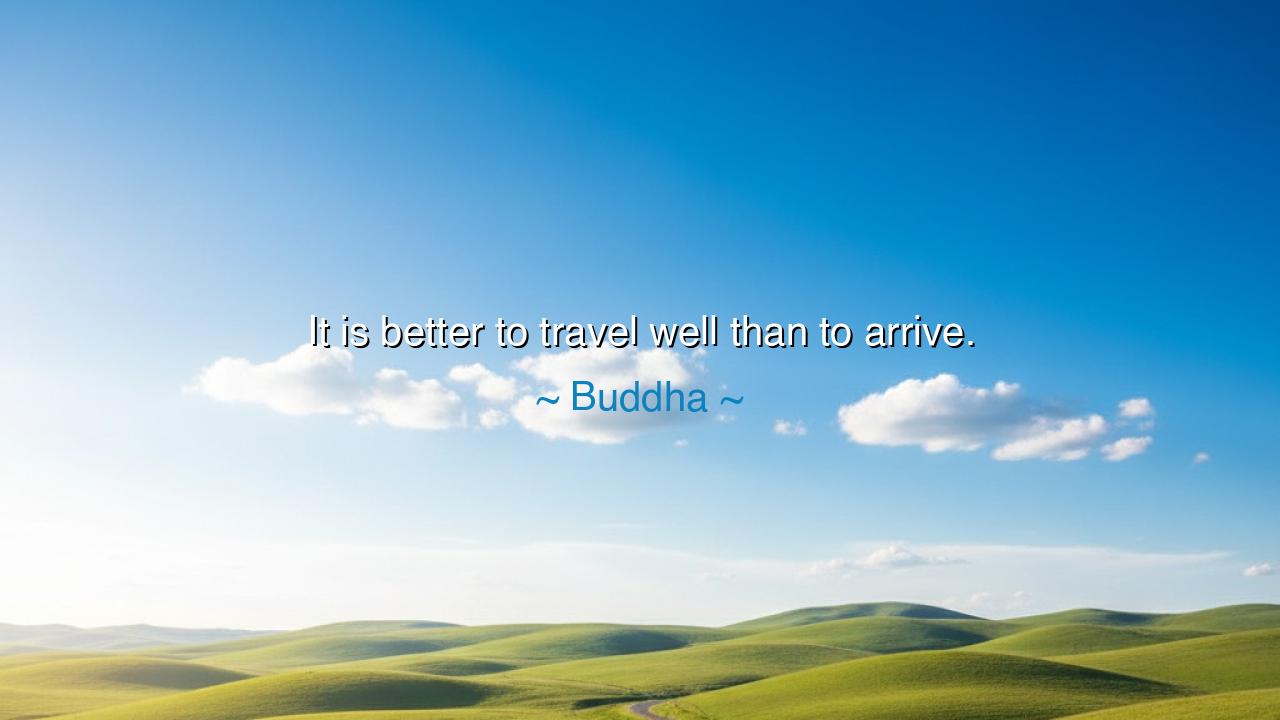
It is better to travel well than to arrive.






Hear, O seekers of wisdom, the timeless words of the Buddha: “It is better to travel well than to arrive.” At first, they may seem strange, for the world teaches us to fix our gaze on the destination, to measure success by completion, to prize the end more than the journey. Yet here the Buddha reminds us of a deeper truth: that life itself is a path, not a finish line, and that the manner in which we walk is more important than the place we reach.
The ancients often spoke of the journey as a mirror of the soul. To travel well is to walk with awareness, compassion, and mindfulness. It is to notice the trees by the roadside, the faces of fellow travelers, the lessons hidden in each step. To arrive, by contrast, is but a single moment, fleeting and soon past. If all our energy is spent on the destination, then we miss the richness of the road itself. In this way, the Buddha teaches us to exchange haste for presence, and striving for peace.
Consider the pilgrimage of the great emperor Ashoka, who after his bloody conquests was transformed by the teachings of Buddhism. He traveled across his empire not to conquer, but to seek wisdom and spread peace. His journeys were not measured in miles alone, but in the gentleness of his steps, the kindness of his words, and the transformations of his heart. For Ashoka, the true triumph was not arriving at a city, but traveling well—turning his path into a river of compassion that still nourishes the world today.
The words also carry a warning for those consumed by ambition. The one who rushes toward arrival may reach his goal, but his heart will be empty, his memories barren, his soul unshaped by the wonders along the way. The one who travels well, however, may never even reach the place he intended, but he will arrive at something far greater: wisdom, humility, and joy. The end is uncertain for all men, but the journey is ours to shape.
In truth, these words are not about roads and distances, but about life itself. Birth is the beginning, death is the arrival, and all in between is the journey. If we live only for the end, we will waste the miracle of the present. But if we travel well—living with kindness, courage, and mindfulness—then when the final arrival comes, we will not regret, for our days themselves will have been filled with meaning.
The lesson, therefore, is clear: measure not your life by goals reached, but by the manner in which you walk each day. Live gently with others, be mindful in your tasks, embrace each moment as though it were a jewel upon the road. The joy of life lies not in the last step, but in the thousand steps before it.
Practically, this means slowing down. Do not rush through your days as though they were mere obstacles to some distant joy. Take time to speak with others, to breathe deeply, to see beauty in the ordinary. Approach your work, your relationships, your struggles with patience and care. In doing so, you will travel well, and even if your destination shifts or fades, your life will remain rich.
So let these words be carried into every heart: “It is better to travel well than to arrive.” For the destination belongs to fate, but the journey belongs to us. Walk with wisdom, walk with love, walk with presence—and you will have already arrived at the greatest treasure of all.






AAdministratorAdministrator
Welcome, honored guests. Please leave a comment, we will respond soon